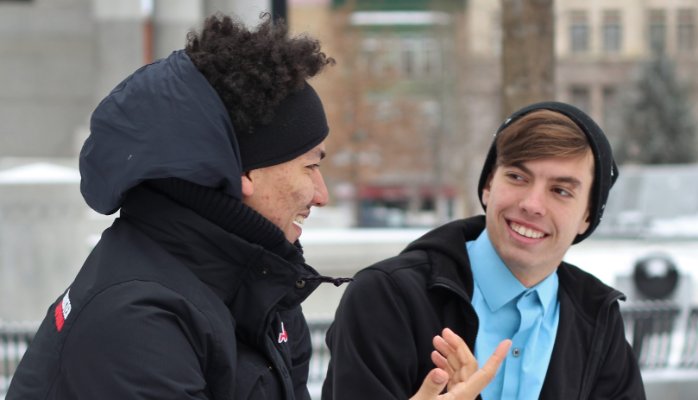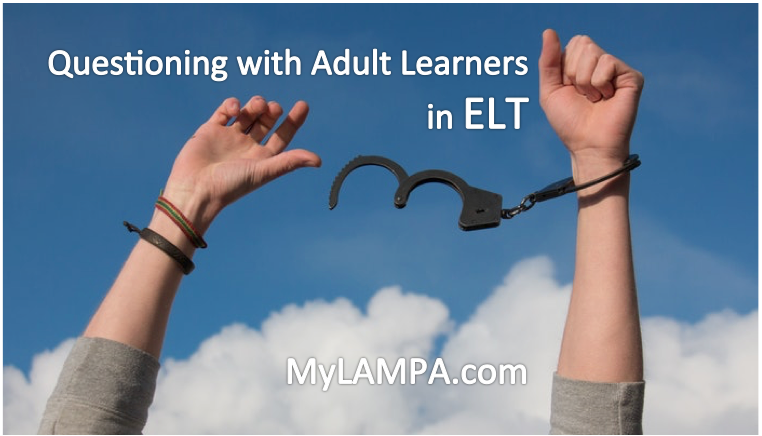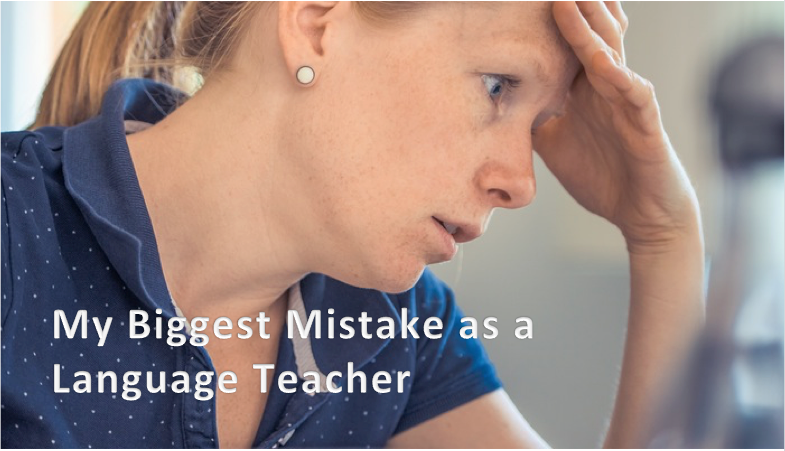Getting Personal with EFL Learners

When sharing personal information with learners, how much is too much? Is it unprofessional? Is anyone interested? How can it be used to help facilitate learning?
As with absolutely anything connected with teaching, or dealing with people in general, the answers to these questions will vary from context to context, from culture to culture and from person to person. However, since I generally find that sharing personal experiences with my own adult EFL students is extremely helpful, I’m going to share my experience here as well.
As we live and teach in a foreign country, we invariably find ourselves in unfamiliar or awkward situations and, even if we sometimes don’t see the humour when we are in the moment, we often have an amusing memory or a good story upon reflection. For instance, there’s the time I mistakenly ordered cat soup (kočková) instead of lentil soup (čočková) at the local pub, or the time that four policemen stopped and surrounded me because I had been running along the street and then, to my chagrin, I wasn’t able to explain in Czech that I was in a hurry because I had to pee – happily, they figured it out when they saw me writhing in a pee dance.
These types of things seem to make good stories because, when we retell them, they seem to put learners at ease and lighten the mood in the meeting room. When used in an illustrative manner, they help learners see that making mistakes or being caught up in embarrassing situations is normal and can be funny. They can also serve to humanize the teacher and help strengthen the bond between teacher and student. However, as embarrassing as these things can be, we can go much deeper in revealing ourselves.
Obviously, anything that is deeply personal need not be shared, but sometimes teachers may share information that they feel comfortable with sharing, but the learners do not need or want to have. Students may react negatively if we open up too much about things such as our love lives or religious beliefs or lack of them. In my experience in the Czech Republic, this type of information tends to cross the line from openness to unprofessionalism.
On the other hand, EFL learners often desire – and need – knowledge of English-speaking cultures and lifestyles and, as native speakers, we are the perfect resource. Many learners also have a keen interest in the factors and events that bring us to their countries. Sharing this or even mundane information about daily routines can help us gain trust and credibility. But it’s not enough just to share information – we should set it up to provide learning experiences at the same time.
I believe that adult learners respond best when the learning is communicative and experiential. This means that learners should use the language as they learn it and they should speak, listen, read or write about issues that are relevant to them and from which they can draw on their own experiences. I also believe that the teacher’s role is to lead as a part of the group rather than an expert lecturer apart from it. This is why I feel strongly that teachers can and should draw on their own lifeworlds as they provide models for learners. We must first open up to learners if we expect them to open up to us – we are the outsiders, after all.
As EFL teachers, we should always be looking for ways of framing these experiences in a learning context or a learning activity. In using our own personal experiences, as well as those of our learners, we also open up opportunities to use a plethora of experientially-based learning activities in the classroom.
So, in conclusion, I am going to leave you with an activity idea so that you can change your own life story into an experiential and communicative learning experience.
One of the personal questions I am often asked is, “Why did you leave Canada to come and teach in the Czech Republic?” I rarely give a detailed answer to this question outside of the classroom because it is just too complicated. But inside the classroom, I go for the full answer, especially when we are doing third conditionals or past modals.
This and other activity ideas can be found at https://www.mylampa.com/community
- Write up the word ‘FATE’ on the board and elicit a definition. Ask if learners believe in fate.
- Explain that many people have asked you why you are doing what you are doing (e.g. Why did you move abroad?, Why do you teach English?, etc.).
- Tell the group that you would like to tell them the answer to that question, but that it is not an easy question to answer.
- Tell your story in simple past in a chronological fashion (e.g. (this is my story) I always liked sport. I studied Business Administration at university. I moved to Toronto and got a job with a sporting goods distributor. My father passed away. I quit my job and went back to Nova Scotia to be with my mother. I was unemployed and bored during the winters. I did a French immersion course at a local university to combat the boredom. I met Louis, who is the best teacher I have ever had. I became interested in teaching and languages. There was a revolution in Czechoslovakia. Most Czech language teachers couldn’t teach English at that time. A friend gave me a newspaper that had a want ad for English teachers in Czechoslovakia. I got the job. I came to Europe to teach. I liked it. I married a Czech woman. We decided to live here. And here I am.).
- Now retell it using conditionals (e.g. If I hadn’t liked sport and studied Business, I wouldn’t have got a job with Sportlines in Toronto. If my father hadn’t passed away, I wouldn’t have left my job and gone back to Digby to be with my mother. If I hadn’t been unemployed and bored, I wouldn’t have gone to study French. If I hadn’t studied French I wouldn’t have met Louis. If I hadn’t had Louis as a teacher, I wouldn’t have developed an interest in languages and teaching. If there hadn’t been a revolution in Czechoslovakia, there wouldn’t have been want ads for teachers in Canadian newspapers. If my friend hadn’t given me the paper, I wouldn’t have applied for a job. If I hadn’t got the job I wouldn’t have come to Europe to teach. If I hadn’t liked teaching I wouldn’t have stayed. If I hadn’t stayed, I wouldn’t have met my wife and I wouldn’t be here now.).
- Ask everyone to take out a piece of paper and to write down a chronological series of events that have led to them being where they are at this moment (nothing they won’t feel comfortable sharing with the group).
- Pair learners and ask them to tell their stories to their partners in the simple past. When they finish ask them to retell their stories using conditionals.
- In plenary, have learners paraphrase one or two of the conditional sentences their partners have shared with them.




